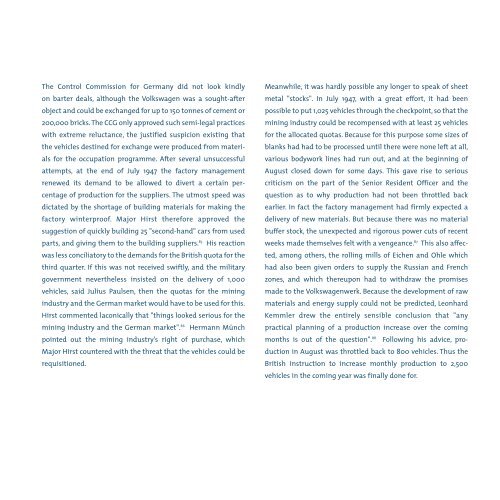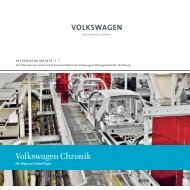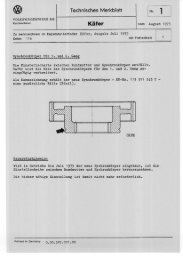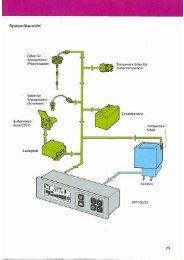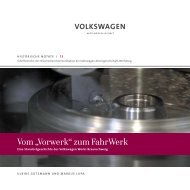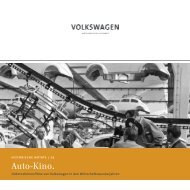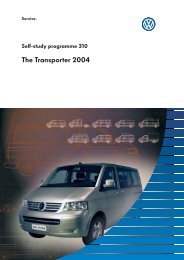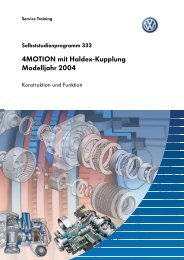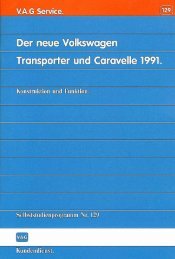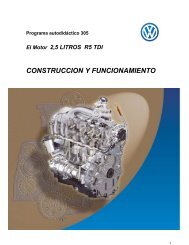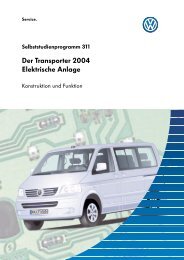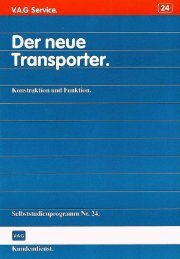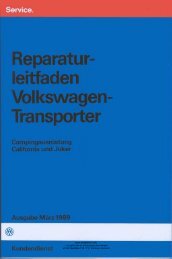HN 2: The British and their Works
HN 2: The British and their Works
HN 2: The British and their Works
Create successful ePaper yourself
Turn your PDF publications into a flip-book with our unique Google optimized e-Paper software.
<strong>The</strong> Control Commission for Germany did not look kindly<br />
on barter deals, although the Volkswagen was a sought-after<br />
object <strong>and</strong> could be exchanged for up to 150 tonnes of cement or<br />
200,000 bricks. <strong>The</strong> CCG only approved such semi-legal practices<br />
with extreme reluctance, the justified suspicion existing that<br />
the vehicles destined for exchange were produced from materials<br />
for the occupation programme. After several unsuccessful<br />
attempts, at the end of July 1947 the factory management<br />
renewed its dem<strong>and</strong> to be allowed to divert a certain percentage<br />
of production for the suppliers. <strong>The</strong> utmost speed was<br />
dictated by the shortage of building materials for making the<br />
factory winterproof. Major Hirst therefore approved the<br />
suggestion of quickly building 25 "second-h<strong>and</strong>" cars from used<br />
parts, <strong>and</strong> giving them to the building suppliers. 85 His reaction<br />
was less conciliatory to the dem<strong>and</strong>s for the <strong>British</strong> quota for the<br />
third quarter. If this was not received swiftly, <strong>and</strong> the military<br />
government nevertheless insisted on the delivery of 1,000<br />
vehicles, said Julius Paulsen, then the quotas for the mining<br />
industry <strong>and</strong> the German market would have to be used for this.<br />
Hirst commented laconically that "things looked serious for the<br />
mining industry <strong>and</strong> the German market". 86 Hermann Münch<br />
pointed out the mining industry’s right of purchase, which<br />
Major Hirst countered with the threat that the vehicles could be<br />
requisitioned.<br />
Meanwhile, it was hardly possible any longer to speak of sheet<br />
metal "stocks". In July 1947, with a great effort, it had been<br />
possible to put 1,025 vehicles through the checkpoint, so that the<br />
mining industry could be recompensed with at least 25 vehicles<br />
for the allocated quotas. Because for this purpose some sizes of<br />
blanks had had to be processed until there were none left at all,<br />
various bodywork lines had run out, <strong>and</strong> at the beginning of<br />
August closed down for some days. This gave rise to serious<br />
criticism on the part of the Senior Resident Officer <strong>and</strong> the<br />
question as to why production had not been throttled back<br />
earlier. In fact the factory management had firmly expected a<br />
delivery of new materials. But because there was no material<br />
buffer stock, the unexpected <strong>and</strong> rigorous power cuts of recent<br />
weeks made themselves felt with a vengeance. 87 This also affected,<br />
among others, the rolling mills of Eichen <strong>and</strong> Ohle which<br />
had also been given orders to supply the Russian <strong>and</strong> French<br />
zones, <strong>and</strong> which thereupon had to withdraw the promises<br />
made to the Volkswagenwerk. Because the development of raw<br />
materials <strong>and</strong> energy supply could not be predicted, Leonhard<br />
Kemmler drew the entirely sensible conclusion that "any<br />
practical planning of a production increase over the coming<br />
months is out of the question". 88 Following his advice, production<br />
in August was throttled back to 800 vehicles. Thus the<br />
<strong>British</strong> instruction to increase monthly production to 2,500<br />
vehicles in the coming year was finally done for.


